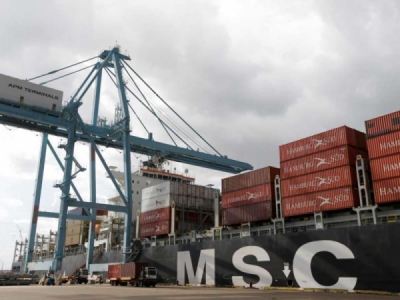
Posted on June 20, 2019
Gov. Greg Abbott on Friday signed two bills that are expected to bring sweeping changes to the Houston Ship Channel.
The first bill, SB 2223, adds hurdles for massive container ships calling on Houston. The legislation mandates two-way traffic in the ship channel and adds new requirements for vessels over 1,100 feet, only permitting them if they can be moved with efficient two-way traffic. In addition, the larger ships’ requests to call on Houston must go through two public hearings and gain approval of 80 percent of Houston pilots.
The bill stems from a months-long campaign by the Coalition for a Fair and Open Port – which represents Houston energy companies including Enterprise Products, Targa Resources Corp. and Kinder Morgan – to cap the number of 1,100-foot vessels that call on Houston. The coalition’s members feared an increase in especially large container ships would congest the ship channel and restrict their movement of products.
But opponents of the bill argue that ships are getting larger, and this new rule may dissuade vessels from calling on Houston.
The second bill, SB 1915, which also stems from the coalition, would create a new governing board for the Houston Pilots that guide vessels to and from Port of Houston docks.
More on SB 1915: Houston Ship Channel pilots to get new governing board
For decades, one board has overseen operations for both the Port of Houston Authority and the Houston Pilots. Now, the Houston Pilots will have a separate board. The legislation also adds two governor appointees.
In a statement, Port Houston Executive Director Roger Guenther emphasized the ultimate need: widening the Houston Ship Channel.
“We are steadfast in our position that keeping the channel open for all vessel traffic is in the best interests of our state and nation,” Guenther said in the statement. “Moreover, we remain focused on the critical objective of obtaining the federal authorization for construction to widen the Houston Ship Channel for the greater good of safety, for the flow of commerce, jobs and economic prosperity of our state and nation.”
Source: chron.com





